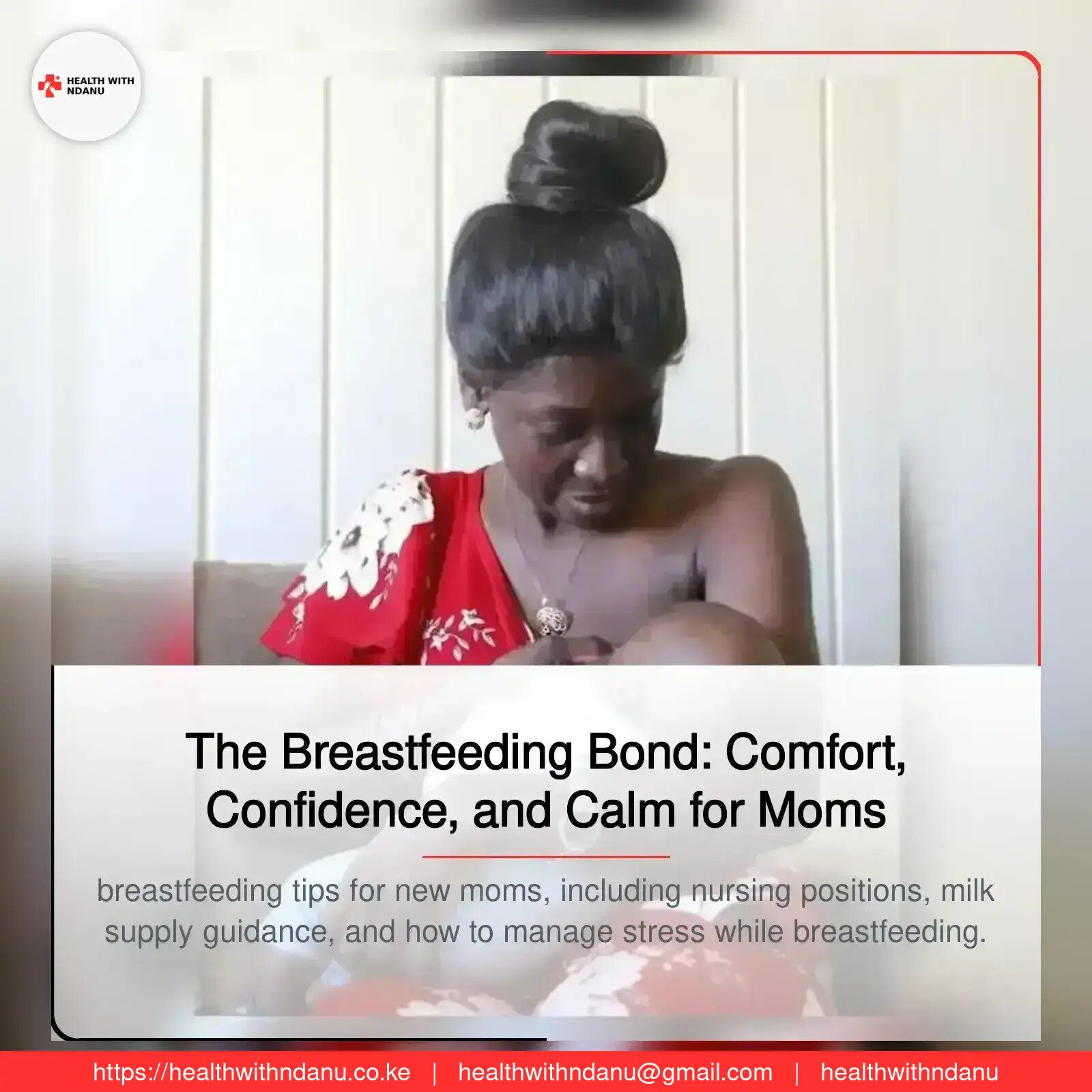The Breastfeeding Bond: Comfort, Confidence, and Calm for Moms



Introduction
As a new parent, one of the most important aspects of caring for your baby is ensuring they are properly nourished. Baby nursing, whether breastfeeding or bottle-feeding, plays a crucial role in your baby’s health and development. This guide covers the essentials of baby nursing, including benefits, tips, and common challenges.
The Benefits of Breastfeeding
Breastfeeding is widely recognized as the best choice for feeding newborns. It offers numerous health benefits for both the baby and the mother.
For the Baby:
- Complete Nutrition: Breast milk contains the perfect balance of nutrients, including vitamins, minerals, and antibodies that are essential for your baby’s growth.
- Boosts Immunity: Breast milk provides antibodies that help protect your baby from infections, boosting their immune system.
- Promotes Healthy Development: The nutrients in breast milk support brain development, digestion, and overall growth.
- Bonding: Nursing creates a strong emotional connection between mother and baby, fostering a sense of comfort and security for your baby.
For the Mother:
- Postpartum Recovery: Breastfeeding helps the mother’s body recover faster by helping the uterus shrink back to its original size and reducing postpartum bleeding.
- Weight Loss: Breastfeeding burns extra calories, helping many mothers return to their pre-pregnancy weight.
- Reduced Risk of Health Issues: Breastfeeding lowers the mother’s risk of developing certain cancers, such as breast and ovarian cancer, and can reduce the risk of osteoporosis later in life.
How to Nurse Your Baby Effectively
Breastfeeding can be challenging at first, but with practice and the right techniques, it can become a natural and rewarding experience. Here are some tips to make nursing easier for both you and your baby:
1. Find a Comfortable Position
Ensure that both you and your baby are comfortable during nursing sessions. Try different positions to find what works best for you—whether it’s the cradle hold, cross-cradle hold, or lying down. The key is to make sure your baby is latched properly to avoid discomfort and ensure effective feeding.
2. Ensure a Proper Latch
A good latch is essential for successful breastfeeding. Your baby’s mouth should cover most of your areola (the darker area around your nipple), not just the nipple itself. If you experience pain during nursing, gently break the latch and try again to avoid nipple damage.
3. Nurse on Demand
Newborns need to nurse frequently—sometimes every 1-2 hours. Nursing on demand, when your baby shows signs of hunger, ensures they get enough milk. Watch for cues like sucking on their hands, rooting (turning their head toward your breast), or making sucking noises.
4. Stay Hydrated and Eat Well
Breastfeeding requires a lot of energy. Make sure to drink plenty of water and maintain a balanced diet to keep your milk supply up. Eating nutritious foods will help support your own health while nourishing your baby.
Bottle Feeding: An Alternative to Breastfeeding
For various reasons, some mothers may not be able to breastfeed, or they may choose to bottle-feed their baby with formula or expressed breast milk. Here’s what you need to know about bottle-feeding:
Choosing the Right Formula
If you decide to formula-feed, consult your pediatrician to choose the best formula for your baby. There are different types of formula (cow’s milk-based, soy-based, or hypoallergenic) depending on your baby’s needs.
Proper Bottle Feeding Technique
- Hold your baby in a semi-upright position to prevent choking and help with digestion.
- Tilt the bottle to fill the nipple with milk and avoid air bubbles, which can cause gas and discomfort.
- Never prop the bottle, as this can increase the risk of choking or ear infections.
Common Nursing Challenges and How to Overcome Them
While nursing is a natural process, it may come with some challenges. Here are a few common issues and ways to deal with them:
1. Nipple Pain and Soreness
This is common, especially in the early days of breastfeeding. Make sure your baby is latched correctly. If pain persists, consult a lactation consultant for tips and support. Applying nipple cream or using breast pads may also help soothe soreness.
2. Low Milk Supply
If you feel your milk supply is low, try nursing more often or expressing milk between feedings. Drinking plenty of fluids, eating nutritious foods, and resting can help. If necessary, consult a healthcare professional for advice.
3. Engorgement
Breast engorgement occurs when your breasts become swollen and painful due to an overabundance of milk. To relieve this, nurse frequently, use warm compresses, or express milk if needed. Engorgement usually decreases after the first few days.
When to Introduce Solid Foods
The American Academy of Pediatrics recommends introducing solid foods to your baby at around six months of age, when they show signs of readiness, such as sitting up with support and showing interest in food. Breast milk or formula should still be the main source of nutrition for the first year.
Conclusion
Baby nursing, whether breastfeeding or bottle-feeding, is an essential part of your baby's early development. By understanding the benefits, following proper techniques, and seeking support when needed, you can ensure that your baby is nourished and thriving. Remember, every baby is different, and there’s no one-size-fits-all approach to nursing. Trust your instincts and seek guidance from health professionals whenever necessary.
Una uzoefu wako? Shiriki nasi
Kategoria Maarufu
Blogu Zinazotembelewa Zaidi
Daily Newsletter
Get all the top stories from Blogs to keep track.



